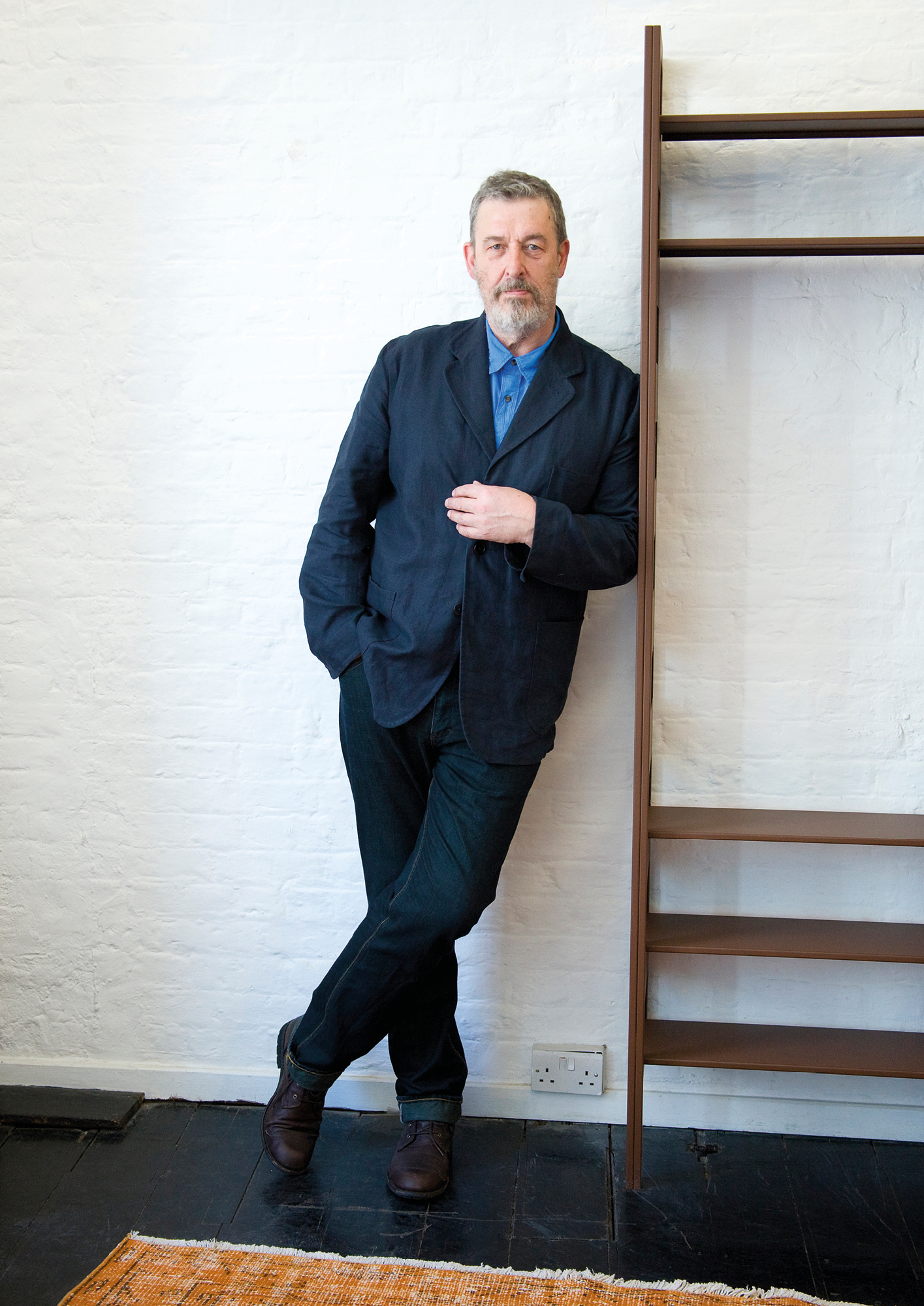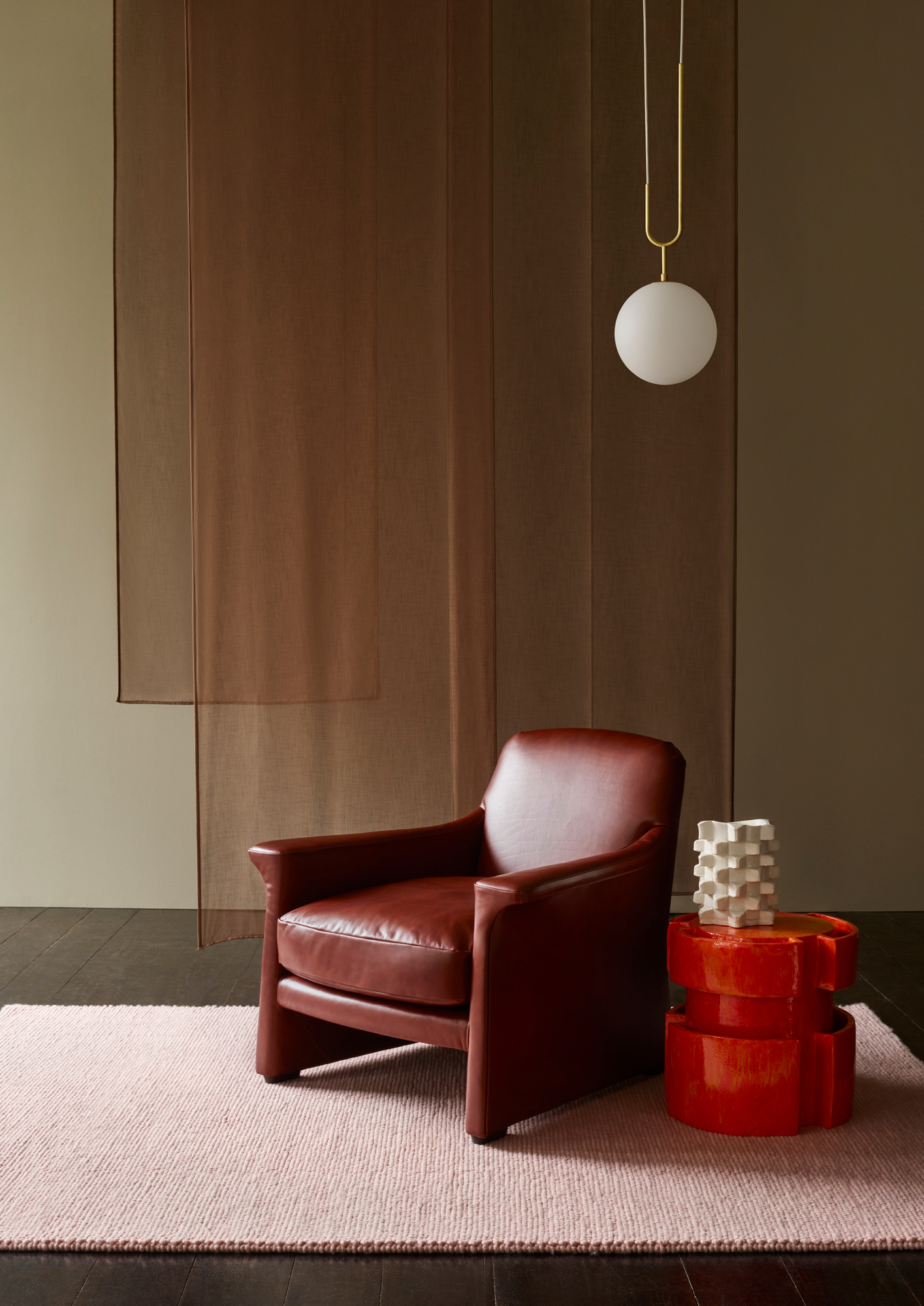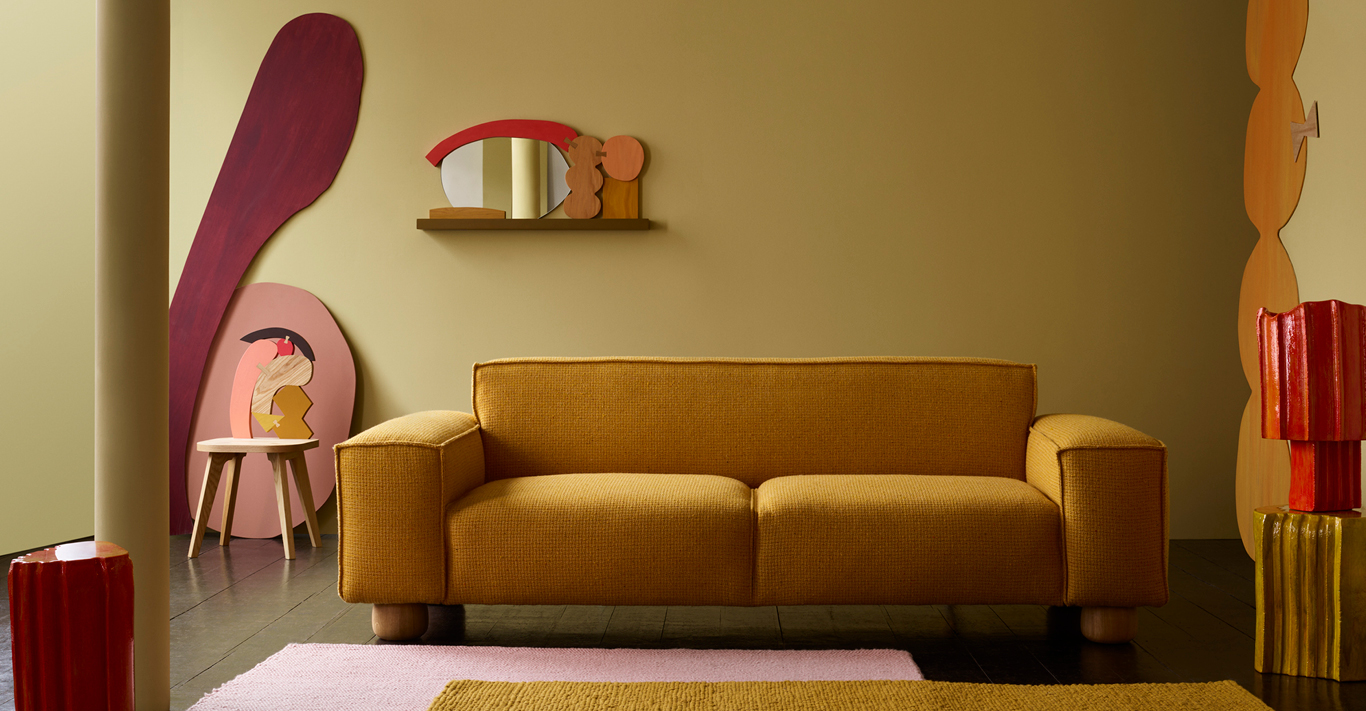WORDS
Amy Raphael
Sheridan Coakley, widely regarded as the pioneer of modern design in Britain, has always embraced a kind of DIY entrepreneur ethos. In the mid-1980s, he set up a small shop in Westbourne Grove in Notting Hill that mostly sold tubular steel Modernist furniture and, during a visit to Paris, marvelled at Philippe Starck’s three-legged chairs at the wildly fashionable Café Costes. In 1985, while taking pieces of furniture to a re-chroming factory in Shoreditch, he noticed an old factory in Curtain Road. He took out a lease and launched Sheridan Coakley Products (SCP) – with a collection of the furniture Starck had designed for Café Costes.

The mid-’80s was, I suggest, an excellent time to launch a product company. Coakley laughs. ‘I just happened to be around at that time. I also knew designers like Matthew Hilton, Tom Dixon and Ron Arad, who had given up trying to design for anyone else and were instead making their own products. It was a rejection of Italian design, which was still dominated by these great designers who were all getting quite old. No young designers, either from Italy or elsewhere, were coming through. I did the Milan Furniture Fair at the same time as Tom Dixon and Ron Arad and things started to change quickly: Philippe Starck was one of the first non-Italian designers to make a name for himself and Jasper Morrison became the first non-Italian designer to work for Cappellini. We had an opportunity to disrupt the industry – I suppose it was, in a way, a kind of punk movement.’
Coakley’s focus these days is very much on sustainable design. SCP’s first collection of 100 per cent foam-free upholstery was showcased at London Design Festival last year and the entire catalogue is now being reverse-engineered to bring it in line with the foam-free manifesto.
Why make such an effort to go foam-free? ‘I just thought we had to try and see if we could make furniture without using petrochemical foam, which becomes toxic as it degrades. Furniture was made without petrochemicals before World War II, and it seems like an unnecessary material if you can find an alternative. But it’s been a very slow process, and we’ve had to wait for more materials to become available, mainly through the wool trade; most British wool is worth nothing and is used for scrap because sheep are reared for meat. We eventually found a wool merchant in the Midlands who was already using wool waste for the mattress industry.’
The first product to be reverse engineered was a sofa by Matthew Hilton called the Oscar, designed around a decade ago with what Coakley refers to as “complex interiors”; now, on average, SCP undertakes four reupholstery projects a month with sofas dating back to the 1990s. However you look at it, the commitment to being sustainable is challenging. ‘Even with new designs that no longer use foam, sustainable products are more expensive and take longer to make,’ he explains. ‘I can’t imagine how big factories who pump stuff out will ever get around those issues. We are in a high-end market, so the additional costs are less of a concern. Plus, if a design is good, you build longevity into the product. I hope that people will be sitting on our foam-free sofas for decades to come.’

Next year, SCP will turn 40. Selling both from the original Curtain Road shop and online, SCP offers an impressive range of modern design products: alongside the classic Matthew Hilton armchair, there’s a wide selection of contemporary furniture by HAY, Vitra, Knoll, Cappellini and Artek as well as a carefully curated selection of vintage furniture. Yet, in the spirit of a true punk entrepreneur, Coakley has never embraced a corporate model and is horrified when asked if he’s ever been tempted to sell to an investor. ‘No! Had I done so, we could have been far more successful. But I like the way the business has grown organically. Investors would have wanted to open stores around the world and the next thing you know, you’ve gone bust. Made.com is a good example.’
When SCP turned 30, it celebrated with an exhibition first at the Salone del Mobile in Milan and then at the Design Museum in London. How, then, will Sheridan Coakley be celebrating four decades as the godfather of modern design? He shakes his head modestly before smiling. ‘With a massive party for all my friends in the business!’




